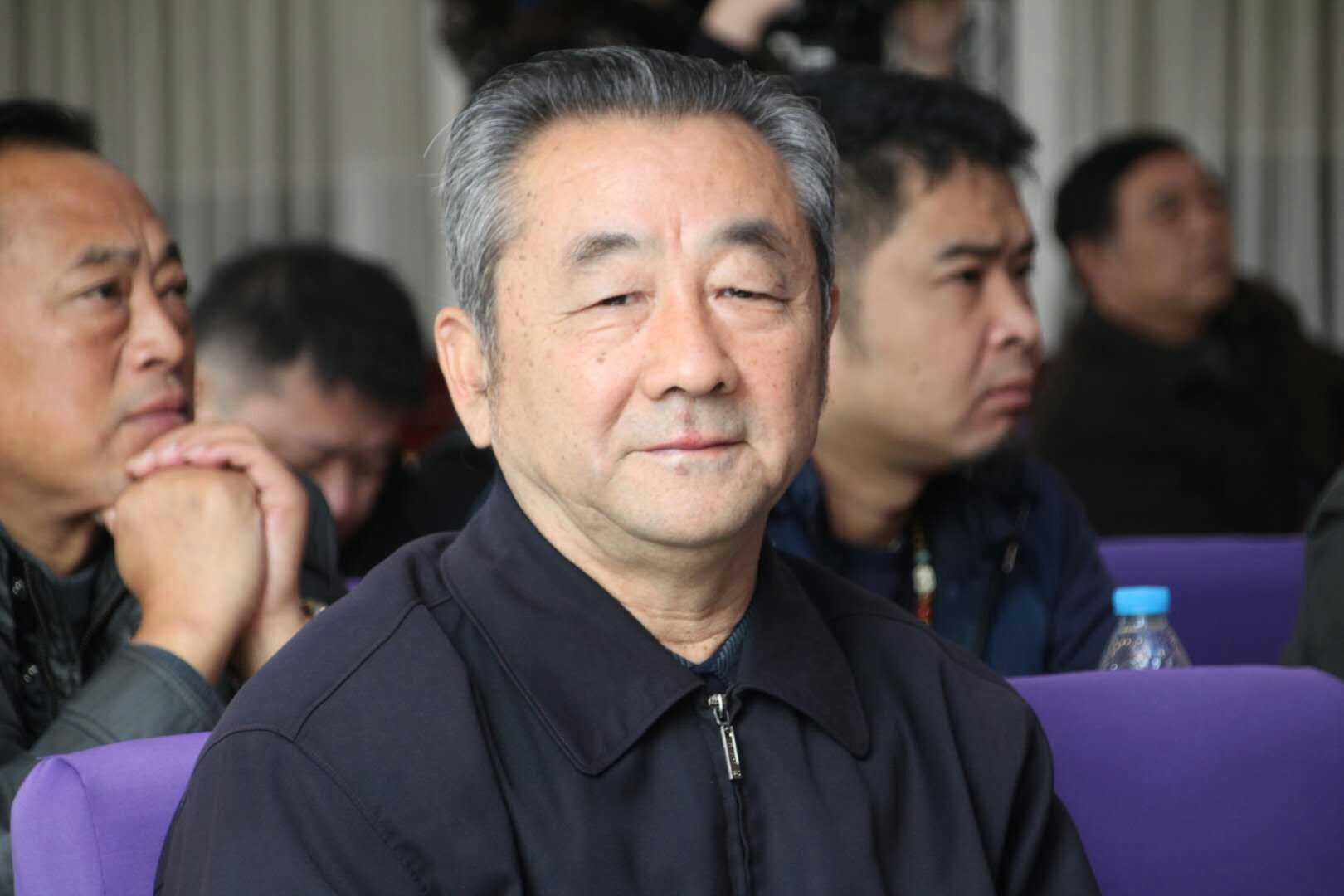Ji Yihai
Ji Yihai
Personal Profile
Ji Yihai, styled Dequan, pseudonym Haiweng, is a native of Kaifeng City, Henan Province, born in 1951, and a graduate of the Chinese Department at Henan University. He is currently a member of the China Calligraphers Association, calligrapher at the Chinese Painting Academy, council member of the Chinese Calligraphy and Painting Art Creation Center, direct member of the People's Artists Association, guest professor at Beijing Guoyi Academy of Painting and Calligraphy, consultant at the Henan Ethnic Promotion Association’s Academy of Painting and Calligraphy, director at the Henan Fengyuan Academy of Painting and Calligraphy Art, member of the Henan Shuchang Yaojia Association, president of the Kaifeng Jinming Academy of Painting and Calligraphy, and holds the title of First-Class Calligrapher.
Ji Yihai has loved calligraphy since childhood; as early as third grade, he represented his school in city-level handwriting competitions. However, at that time, he did not yet have a clear understanding of the term "calligraphy." In the early 1970s, Ji Yihai was fortunate to come into contact with renowned calligraphers—Professor Ma Dengjiao from Henan University, Kaifeng's calligraphy master Niu Guangfu, and calligraphy master Li Lianquan. Under their guidance, he began studying the styles of Wang Xizhi, Wang Xianzhi ("Erwang"), Yan Zhenqing, and Liu Gongquan, diligently practicing and building a solid foundation. Later, he explored the works of Su Shi and Huang Tingjian, broadening his artistic vision. For cursive script, he developed a particular admiration for Huaisu and Zhang Zhi, expanding his expressive range. In recent years, he has focused on Wang Duo and Kang Youwei, exploring bolder, more substantial styles. Through decades of persistent study and imitation, he has finally achieved a synthesis of techniques and formed his own unique style—evolving from a simple initial liking into a deep passion and obsession, elevating his artistry to a new level.
His engagement with the "Kang-style" calligraphy began by chance during practice. Thereafter, he extensively sought out Kang Youwei's calligraphic works, researching the characteristics and stylistic features of Kang-style. He discovered that Kang-style features long, flat strokes, mostly rounded turns, natural brush movement, open structure, and exudes a bold, unconventional energy—an artistic spirit marked by grandeur, smooth depth, rugged thickness, and expansive freedom. The powerful presence, solemn aura, strong stroke work, and fully realized structural integrity of Kang-style captivated Ji Yihai beyond mere appreciation—he became utterly fascinated. As Kang Youwei's style varied across different periods, Ji Yihai carefully selected one among them, progressing from painstaking imitation to free expression, incorporating elements from Han dynasty bamboo slips, Han clerical script (Lishu), and various other calligraphic styles. Eventually, he developed a personal style that preserves the essential bones of Kang-style while introducing fresh creativity.
Regarding calligraphic creation, Ji Yihai holds unique insights. He believes learning calligraphy should stem from natural interest—one must learn from tradition without being confined by it. Calligraphy requires emotion: the deeper the feeling, the more profound the art. In 2015, commemorating the 80th anniversary of victory in the War of Resistance against Japan, he used Kang-style to write Zhu De’s famous seven-character regulated verse poem “Taixing Spring Sentiments.” Ji had known this poem by heart for many years. Before writing, he recited it repeatedly, immersing himself in General Zhu De’s resolute spirit of joining the anti-Japanese struggle and his vast, surging emotions. While writing, he seemed to hear the earth-shaking battle cries from the resistance frontlines and see heroic soldiers charging forward, swinging their big sabers down upon the enemy. It was profoundly moving. The entire process was not only an educational experience but also one of emotional immersion—expressing deep sentiment through brushwork.
Hard work brings corresponding rewards. Thanks to Ji Yihai’s dedicated efforts over many years on the path of calligraphic art, he has achieved remarkable success, winning more than thirty major awards including the Bronze Prize in the China-Japan International Painting and Calligraphy Competition, the Excellence Award in the China-Philippines-Japan International Painting and Calligraphy Competition, and the First Prize in the Beijing Zhonghua Guozi Commemorative Art Creation Contest. He has been honored with the title of "Inheritor of Chinese Cultural Heritage." His works are collected by collectors both domestically and internationally—including in the UK, South Korea, Malaysia, Hong Kong, Macao, and Taiwan—and have been included in over thirty authoritative publications such as *The Great Canon of Chinese Calligraphy* and *The Complete Works of Chinese Calligraphers*. He has compiled and published three collections of painting and calligraphy works. The Kaifeng Jinming Academy of Painting and Calligraphy, which he leads, has become a member unit of a national alliance of forty academies led by the Nanjing Yangtze River Academy of Painting and Calligraphy. His achievements have been widely reported and promoted by media outlets including *Calligraphy Guide Newspaper*, *Kaifeng Daily*, *Bianliang Evening News*, Henan TV, Kaifeng TV, Baidu, Tencent, Sogou, China News Service, Hong Kong Satellite TV, Hong Kong Ta Kung Wen Hui Media, China Film & Television Network, Yellow River Painting and Calligraphy Network, Kaifeng University website, and China Painting and Calligraphy Live Streaming.
para-title
TAG:
Ji Yihai

 中文
中文  en
en 
